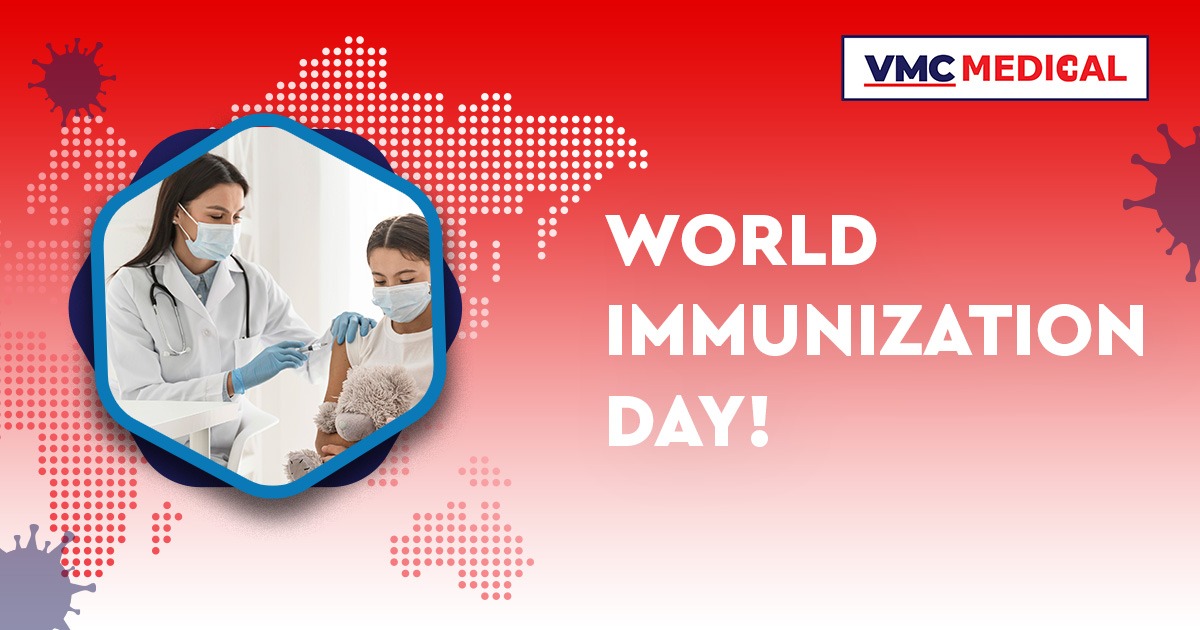Everything You Need to Know About World Immunization Day!
 Posted On
Posted On
578 total views, 2 views today
World Immunization Day is observed annually on November 10th in order to increase public awareness of the importance of immunization. It emphasizes on the cost-effectiveness of vaccines as well as the long-term advantages of immunizations and how they can protect people from a variety of diseases.
Over the previous few years, Medical professionals have used the COVID vaccine to manage the fatal COVID-19, which infected millions of people. It has acted as a superb illustration of the relevance of World Immunization Day in teaching people about the value of receiving vaccinations.
When did immunizations start being used?
Immunization has been practiced by humans at least since the 12th century. In order to immunize a child against smallpox in 1796, Edward Jenner—the father of vaccination—injected them with the vaccinia virus. Following this, the smallpox vaccination was widely utilized worldwide, which led to the eradication of smallpox. Louis Pasteur administered the cholera-preventive anthrax vaccine to humans in 1897.
Throughout the 20th century, the field of vaccines had substantial growth as a result of research, development, and discovery. One such development that was regarded as significant in this area was the polio vaccine. Along with protecting patients from these diseases, vaccination has greatly reduced the incidence of bacterial meningitis cases in recent years.
What is the purpose of World Immunization Day?
The World Health Organization estimates that vaccinations avert the deaths of close to 2-3 million people annually. Additionally, it shields kids from contracting a host of harmful illnesses like the measles, polio, and tetanus. WHO also emphasizes that immunization has protected kids all around the world from contracting diseases like rotavirus pneumonia and diarrhea, which can be fatal for kids under the age of five.
The purpose of World Immunization Day is to highlight immunization as a practical, low-tech, and effective way to prevent dreadful diseases. Additionally, it emphasizes how immunization raises immunity to deadly diseases. If a community is ever exposed to a disease, there is minimal to no risk of infection among those who have received vaccinations.
Polio was formerly one of the most feared diseases to ever exist in the country and was responsible for numerous fatalities and paralysis cases all over the country. However, the World Health Organization has declared India to be polio-free as of 2014. Due to vaccination, India has now been taken off the list of endemic nations.
The Benefits of Vaccination
Immunization and vaccination are two different concepts. The term “vaccination” refers to receiving a vaccine by injection or oral dose, but the term “immunization” refers to the process of developing an immunity to the disease after receiving a particular vaccination. There is little difference in the results of several vaccines when administered orally versus when administered as shots. We benefit from timely immunization and vaccination in the following ways:
- Creating herd immunity
The majority of people may decide not to get vaccinated because of specific conditions, co-morbidities, or vaccination anxiety. The unvaccinated individuals, however, are more likely to become ill when the remaining individuals are immunized because the disease will not spread. A person with immunity won’t worry about contracting or spreading the illness.
- Increases immunity
By strengthening our body’s natural defense mechanisms alongside vaccinations, diseases are less likely to be contracted. The immune system is protected against that virus or organism when we receive a vaccine, making our system robust and secure.
- Increases the quality of life
One needs to be free from the worry of contracting illnesses in order to live a healthy life. While we can treat certain illnesses on our own, immunizations can protect us from others and help us live healthier lives by preventing illness.



